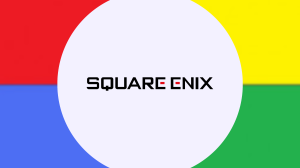Following a turbulent few weeks at Unity, it was announced today that John Riccitiello will retire from the company. Riccitiello served as President, CEO, chairman, and served on Unity’s board of directors. The move will be effective immediately, and James M. Whitehurst will serve as interim CEO, president, and member of the Board. Meanwhile, Roelof Botha has been appointed as the new chairman at Unity. In a press release, Botha praised Riccitiello’s work at Unity, and the many years he had spent with the company.
Videos by ComicBook.com
“Working with Unity under John’s leadership has been one of thehighlights of my career. John joined the Unity Board in 2013 and steppedin to lead the Company in 2014, at a time when we faced significantchallenges,” said Botha. “John has led Unity through incrediblegrowth over the last nearly 10 years, helping us transition from aperpetual license to a subscription model, enabling developers tomonetize, building other game services to serve our creator community,leading us through an IPO and positioning us as a pioneer in thedeveloper community. Unity would not be where it is today without theimpact of his contributions. I remain excited for the future of Unity.”
Unity’s Transition
While Riccitiello’s tenure with the company has now come to an end, Unity has stated that he’ll “continue to advise Unity to ensure a smooth transition.” Prior to his time at Unity, Riccitiello previously served as president and COO of EA from 1997 to 2004. After three years away from the company, Riccitiello came back to EA to serve as the company’s CEO, before resigning in 2013.
Unity Runtime Fee Change
While the press release says nothing about the last few weeks at Unity, it’s impossible not to draw a connection between Riccitiello’s departure and the company’s recent controversies. In September, Unity announced a new runtime fee, which would have charged developers every time a player installed the game. The policy was met with widespread condemnation from video game developers, who pointed out the absurdity of such a change. Given the fact that gamers are constantly deleting and re-downloading games to make space, the decision made no sense. Some developers also pointed out that they could be punished for pirated installs. As a result of these changes, many studios swore off using Unity for future projects, and some games were even cancelled as a result, including the Nintendo Switch version of BallisticNG.
Following universal backlash against the company, Unity changed course on the decision. However, many developers are now skeptical about working with Unity on future projects, and have expressed an interest in pursuing other engines. Perception of Unity is basically at an all-time low, and it will take a lot of work for the company to earn back the trust of developers. Hopefully the next CEO will be able to do just that!
Are you surprised to see Riccitiello’s resignation? Do you think Unity can bounce back from these recent issues? Share yourthoughtswith medirectly onTwitter at @Marcdachamp or on Instagram at @Dachampgaming!








